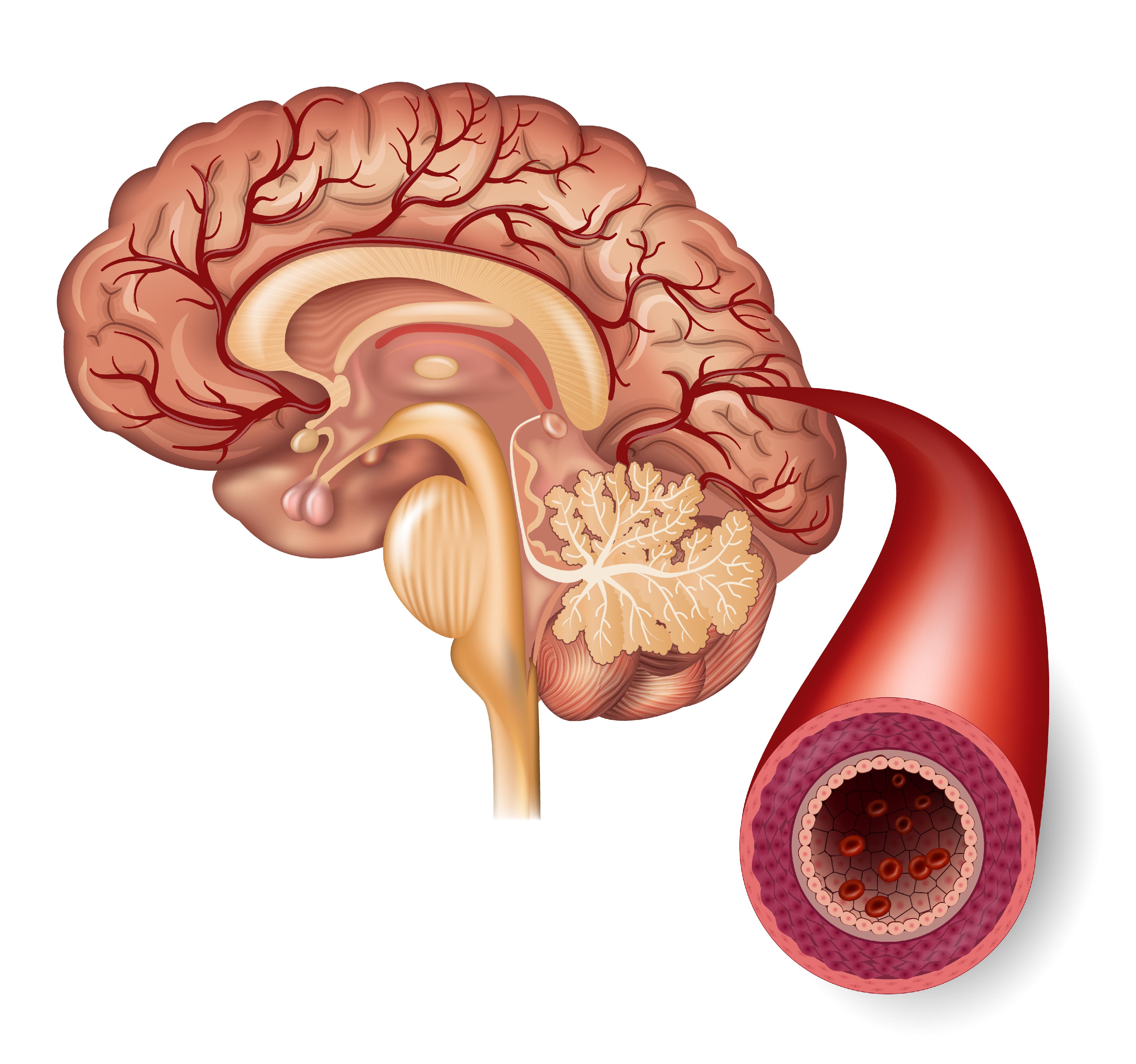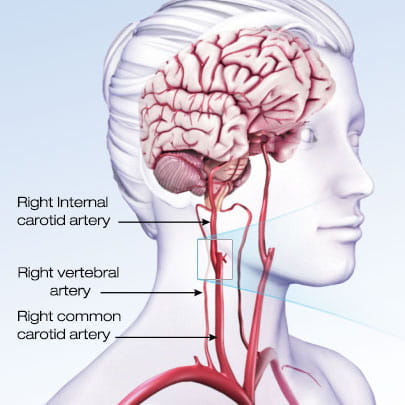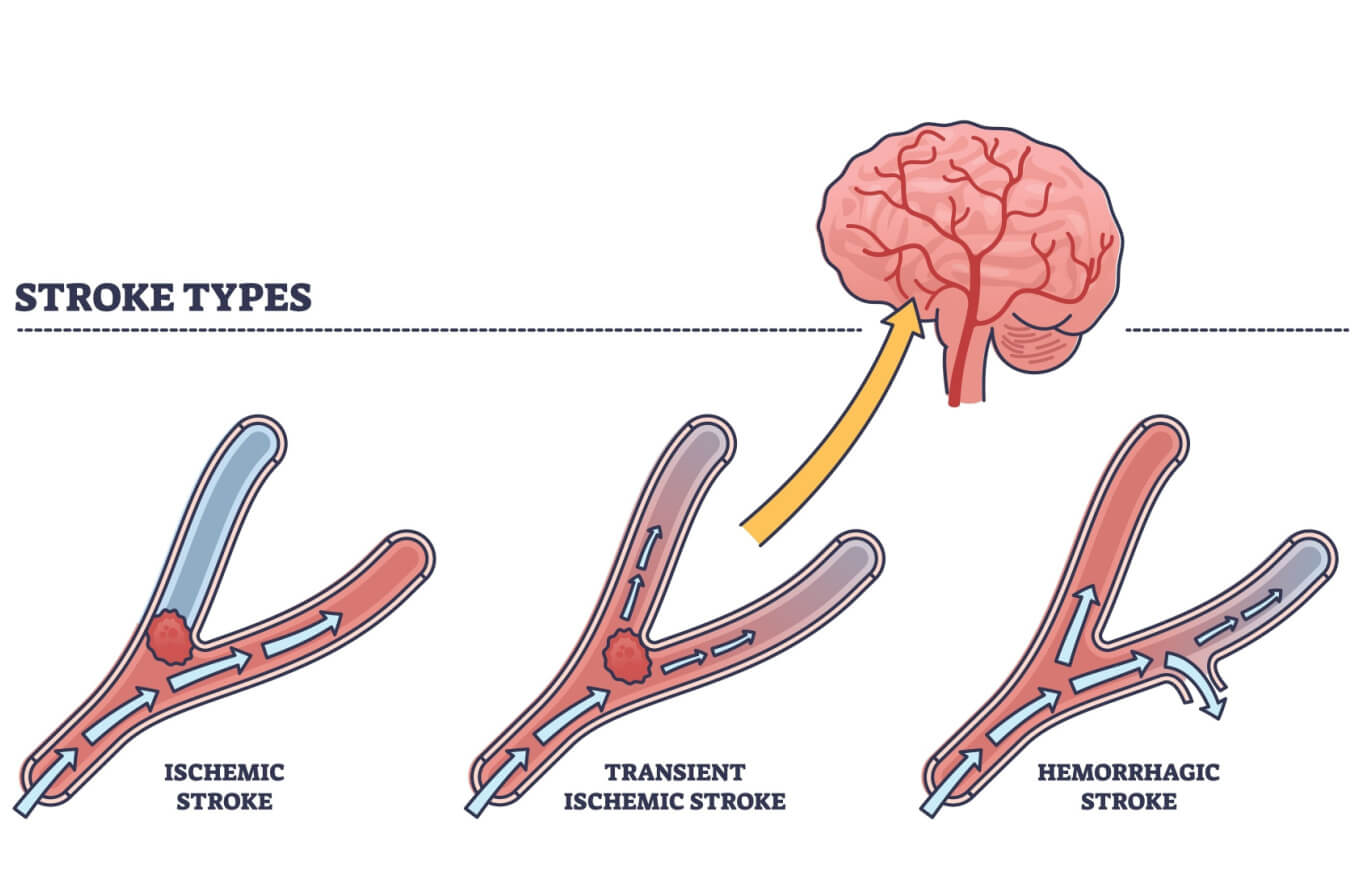Understanding Tia Magnificent - A Temporary Warning Sign
Sometimes, our bodies give us little nudges, brief moments that seem to pass quickly but carry a significant message. One such instance, often referred to as a transient ischemic attack, or TIA, is that a short spell of sensations can feel very much like what happens during a stroke. It's a quick event, yet it holds a lot of weight for someone's health picture. You know, it's almost like a quick flash of lightning that, while not a full storm, still tells you rain might be on its way.
These temporary episodes, which some might call a tia magnificent, happen because there's a quick, passing interruption in the movement of blood going to a part of the brain. Think of it like a brief pause in a busy highway; traffic stops for a moment, but then it gets going again pretty fast. This interruption is usually so short that it doesn't cause lasting harm to the brain's delicate structures, which is a key difference from a full stroke. So, in a way, it’s a temporary shortage, a fleeting moment of decreased supply that gets better on its own.
Despite its brief nature, a tia magnificent is more than just a fleeting sensation; it's a very important communication from your body. It's a kind of early alert, a heads-up that there could be a bigger concern on the horizon. This is why paying attention to these short occurrences is so incredibly important for anyone experiencing them. It's a sign that something needs a closer look, you know, a prompt evaluation to figure out what's going on and how to best care for your well-being.
Table of Contents
- What Exactly is a tia magnificent?
- How Long Does a tia magnificent Last?
- Why Does a tia magnificent Happen?
- What Should You Do After a tia magnificent?
- Can a tia magnificent Predict Future Health Concerns?
- The Connection Between Carotid Artery Trouble and a tia magnificent
- Are There Other Conditions That Mimic a tia magnificent?
- Getting Help for a tia magnificent: Your Care Team
What Exactly is a tia magnificent?
A transient ischemic attack, often called a TIA, is, you could say, a short-lived event where a person feels things that are very similar to what someone might feel during a stroke. This means that, for a brief time, you might notice sudden changes in how your body works, like a sudden weakness on one side, or trouble speaking clearly. It's a temporary experience, just a little bit like a short circuit that quickly corrects itself. So, this brief period of symptoms is what defines it, basically.
The reason these temporary feelings come about is because there's a quick, momentary stop in the flow of blood going to the brain. Your brain, you see, needs a steady stream of blood to work properly, carrying all the good things it requires. When that stream gets briefly blocked, even for a short while, the part of the brain that isn't getting enough blood can't do its job right, and that's when the sensations appear. This brief blockage is the core reason for a tia magnificent, in some respects.
The crucial thing about this brief stoppage is that it doesn't cause any permanent harm. Unlike a full stroke, where the interruption lasts long enough to cause lasting damage to brain tissue, a TIA is a fleeting event. The blood flow quickly returns to normal, and the sensations usually go away completely. This is what makes it a "transient" event, meaning it passes. It's really just a short-term issue that resolves itself, you know.
- Maxblackwell747 Leaked
- Wandsworth Guard Video X Twitter
- Pavvy G Twitter
- Breastfeeding Twitter
- Kio Cyr Leaked
How Long Does a tia magnificent Last?
Most of the time, a transient ischemic attack, or what some call a tia magnificent, lasts for only a few minutes. This is a very important detail because it highlights just how brief these episodes can be. You might experience a sudden change, and then, almost as quickly as it started, it's gone. This short duration is often what makes people think it was nothing serious, or just a temporary odd feeling, but that's where the misunderstanding can happen, actually.
The brevity of these occurrences means that the sensations you feel will typically fade away completely within a short span of time. It's not something that lingers for hours or days; rather, it's a quick, passing moment. Because the symptoms are so brief, a person might dismiss them, thinking they were just tired or had a strange headache. However, even if the feelings last for just a moment, they carry a significant message, as a matter of fact.
Even if the symptoms of a tia magnificent only last a minute or two, the fact that they happened at all is what truly matters. The duration of the event, while short, does not lessen its importance as a potential indicator of something that needs attention. So, whether it was five minutes or just a few seconds, the presence of these sensations is what should prompt further inquiry, pretty much.
Why Does a tia magnificent Happen?
The core reason a transient ischemic attack comes about is a temporary decrease in the amount of blood getting to a particular part of the brain. This decrease in supply can happen for various reasons, but the key is that it's not a complete, lasting blockage. It's more like a temporary kink in a hose, where the water flow slows down or stops for a bit, but then the kink straightens out. This temporary reduction is what sets the stage for a tia magnificent, you know.
This momentary lack of blood supply means that the brain tissue in that specific area isn't getting the oxygen and other things it needs to function properly. When brain cells are deprived, even for a short time, they can't send messages or carry out their usual tasks, and that's when the outward signs appear. It's a very direct link between the blood supply and how your brain works, in a way.
The temporary nature of this decrease is why no lasting harm usually occurs. The blood flow returns before any significant damage can take place. However, the fact that the flow was interrupted at all is a signal that something might be interfering with the brain's steady supply of blood. This is why understanding the cause of a tia magnificent is so important for future well-being, actually.
What Should You Do After a tia magnificent?
If you experience symptoms that suggest a transient ischemic attack, getting a quick assessment of what happened is incredibly important. This speedy evaluation helps medical professionals figure out what caused the event. You see, understanding the underlying reason is the first step toward preventing more serious health issues later on. It's like finding out why a smoke detector went off, even if there wasn't a big fire, to make sure it doesn't happen again, or worse, that a real fire doesn't start. So, a prompt check-up is definitely what you should do.
This assessment also plays a crucial role in helping your medical care provider decide on the best plan for your health. Once they have a good idea of what led to the tia magnificent, they can then recommend steps to take to keep you well. This might involve different types of support or ways to manage any underlying health concerns. It’s about creating a personal path to better health, basically.
The aim of this quick assessment and the subsequent decisions about your care is to reduce the chance of more significant health events in the future. By addressing the cause of the temporary symptoms, medical teams can work with you to put measures in place that support your long-term health. This is a very proactive approach to staying healthy, you know, and it starts with that initial, swift look at what happened.
Can a tia magnificent Predict Future Health Concerns?
It's a very important point that no matter how brief the symptoms of a transient ischemic attack are, a TIA often serves as an early sign that a person might be at risk for a stroke. This is a critical message to understand, as the temporary nature of the event can sometimes lead people to underestimate its significance. So, even if the feelings pass quickly, the warning remains, pretty much.
The numbers here tell a compelling story: about one out of every three people who experience a TIA later go on to have a stroke. This statistic highlights why taking a tia magnificent seriously is so vital. It's not just a passing oddity; it's a strong indicator that something needs attention to prevent a more serious event from occurring. This is a very direct link, you know.
Therefore, recognizing a TIA for what it is—a warning signal—is key to taking proactive steps for your health. It offers a chance to look into what might be causing the issue and to put measures in place to reduce the chances of a stroke. This early alert can make a real difference in someone's health path, providing an opportunity for intervention and prevention, actually.
The Connection Between Carotid Artery Trouble and a tia magnificent
Sometimes, a condition affecting the carotid arteries, which are major blood vessels in your neck that supply blood to the brain, can be a slow process. This issue, often called carotid artery disease, might develop over time without any obvious signs. You know, it's a bit like a silent buildup that doesn't make itself known right away. The very first indication that someone has this condition could actually be a stroke or a transient ischemic attack, which is sometimes called a tia magnificent, for example.
A TIA, in this context, is a temporary lack of blood flow to a part of the brain, caused by this underlying carotid artery problem. Even though this temporary reduction in blood supply doesn't cause lasting harm, it acts as that important warning signal. It tells you that there might be something going on with those crucial blood vessels that needs to be addressed. So, the connection here is very direct, actually.
When the carotid arteries become narrowed or have blockages, it can make it harder for blood to get to the brain consistently. This is a common reason why a TIA might occur. Understanding this link means that if you experience a tia magnificent, medical professionals will often look closely at the health of your carotid arteries to see if they are the source of the temporary blood flow interruption, as a matter of fact.
Are There Other Conditions That Mimic a tia magnificent?
Sometimes, temporary issues with speaking or understanding words, known as aphasia, can happen. These moments of difficulty with language might be caused by a few different things. For instance, they could be due to very strong headaches, or what some call migraines, or they might be connected to seizures, which are bursts of unusual brain activity. Interestingly, these temporary language troubles can also be a sign of a transient ischemic attack, or a tia magnificent, you know.
The symptoms of vascular dementia, a type of memory and thinking problem, can also vary quite a bit. How they appear depends on which part of your brain is experiencing reduced blood flow. What's more, the signs of vascular dementia often have things in common with the symptoms of other kinds of dementia. So, it can be a bit tricky to tell them apart sometimes, basically.
This overlap in symptoms means that when someone experiences something like a tia magnificent, medical professionals need to consider a range of possibilities. It's about looking at the whole picture to figure out the exact cause of the temporary sensations or cognitive changes. This careful approach helps ensure that the right diagnosis is made and the best path forward is chosen, you see.
Getting Help for a tia magnificent: Your Care Team
When it comes to getting care for a transient ischemic attack, or a tia magnificent, places like Mayo Clinic have care teams ready to help. These teams include medical professionals who have specific training in conditions that affect the brain and its blood vessels. They are, you could say, specialists in understanding how blood moves through the brain and what happens when that movement is interrupted. This specialized knowledge is very important for accurate assessment and guidance, pretty much.
These medical experts are familiar with a range of related conditions, such as stroke, issues with brain blood vessels like arteriovenous malformations, brain aneurysms, and subarachnoid hemorrhages. They also understand problems with the carotid arteries, which are those important blood pathways in the neck. Their broad understanding means they can look at your situation from many angles, you know.
For instance, if the reason for a TIA is a narrowing of the blood vessels in the head, medical staff might suggest certain approaches. If there's a significant blockage in a major blood vessel, they might even prescribe medicines like aspirin or clopidogrel, sometimes along with another medication called cilostazol. These steps are aimed at helping to improve blood flow and reduce the chances of future problems. So, there are different ways medical professionals can help, depending on what they find, actually.



Detail Author:
- Name : Torey Champlin
- Username : osinski.kaycee
- Email : mikayla.koelpin@yahoo.com
- Birthdate : 2004-06-21
- Address : 50825 Seth Unions Suite 800 New Maximillia, GA 39118-2388
- Phone : 1-509-943-4793
- Company : Rosenbaum and Sons
- Job : Sales Engineer
- Bio : Nihil aut odio sit voluptatum. Et ullam ea alias dignissimos harum aut nobis. Omnis officia facere labore id. In unde architecto esse pariatur possimus aut molestiae.
Socials
tiktok:
- url : https://tiktok.com/@tevinnikolaus
- username : tevinnikolaus
- bio : Molestias quaerat quisquam esse facere error ipsam eveniet.
- followers : 5672
- following : 1943
facebook:
- url : https://facebook.com/tevinnikolaus
- username : tevinnikolaus
- bio : Earum in voluptas labore facere eveniet sunt.
- followers : 5221
- following : 2617
linkedin:
- url : https://linkedin.com/in/tevin4383
- username : tevin4383
- bio : Sint delectus voluptates nostrum omnis.
- followers : 567
- following : 136
instagram:
- url : https://instagram.com/nikolaust
- username : nikolaust
- bio : Aut mollitia nisi non. Consequuntur hic quisquam ducimus blanditiis.
- followers : 6287
- following : 1510
twitter:
- url : https://twitter.com/tevin_nikolaus
- username : tevin_nikolaus
- bio : Accusamus beatae aut rerum est at. Soluta distinctio modi corrupti. Quo et et et sed quo deserunt. Natus nulla sit harum.
- followers : 2786
- following : 2438